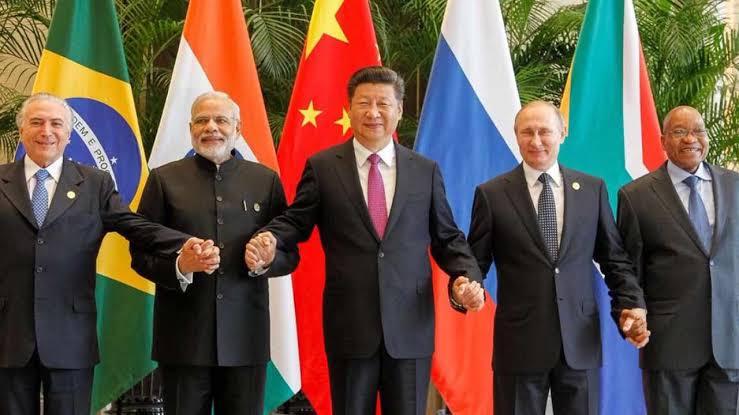Members of BRICS (Brazil, Russia, India, China, South Africa) are exploring the introduction of digital currencies to achieve economic independence. This topic took center stage at a business forum held in Moscow, Russia.
The BRICS nations discussed the implementation of a new payment system to replace the SWIFT (Society for Worldwide Interbank Financial Telecommunication) system, aiming to reduce reliance on Western financial systems.
# Putin Urges Adoption of Digital Currency, Calls for Decreased Dollar Dependence
Russian President Vladimir Putin urged BRICS member countries to adopt cryptocurrencies and other digital currencies in financial transactions. He suggested that this would reduce dependence on the dollar and present opportunities for economic independence.
President Putin emphasized that the benefits of digital currency adoption could extend to other developing nations as well. He underscored that this should be a major objective for the economic bloc. Additionally, he noted that digital currencies could have a positive impact not only on BRICS nations but also on other emerging economies.
However, he also stressed the importance of a robust regulatory framework before the adoption of digital currencies. He called for the establishment of a regulatory structure led by BRICS countries.
# Global Digital Currency Adoption Increases, Continued Institutional Development at the National Level
Globally, the adoption of digital currencies, such as cryptocurrencies, is on the rise. These currencies are favored for their potential to bypass traditional banking systems.
Moreover, the introduction of central bank digital currencies (CBDCs) is gaining momentum. CBDCs are digital versions of national currencies issued and regulated by central banks.
Among BRICS members, Russia and China have already begun exploring the implementation of digital currencies. Russia plans to pilot the digital ruble from July next year, while China has made significant progress with its digital yuan (DCEP). As of the end of 2021, approximately 261 million digital wallets were opened, and transactions worth 87.565 billion yuan were conducted.
In addition to digital currencies, BRICS has officially launched a new payment platform, ‘BRICS Pay,’ to replace the SWIFT system. This platform aims to streamline cross-border transactions between member countries and serve as an alternative to avoid U.S. sanctions.
BRICS Pay reflects the members’ aspiration to establish a self-sufficient economic structure, moving away from the constraints of traditional financial systems. It is expected to open new avenues for economic cooperation among BRICS nations



